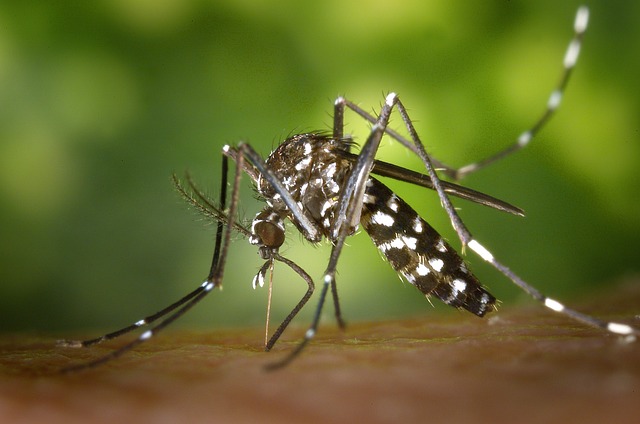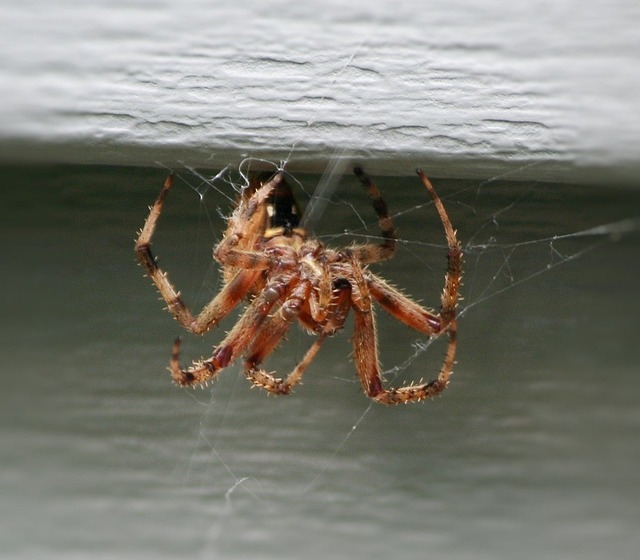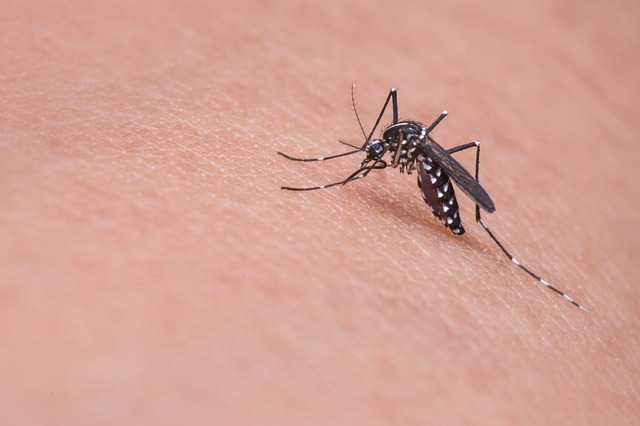
Among the many tiny critters that can leave their mark on your skin, mosquito and spider bites are two of the most common culprits. While these bothersome bites share the common thread of discomfort, the difference between a mosquito bite and a spider bite is as distinct as night and day.
From the nuances of their causes and the telltale signs they leave on your skin to the remedies that offer respite, we’ll delve into the world of these tiny and pesky creatures.
So, whether you’re seeking relief from a recent encounter or arming yourself with knowledge for the next outdoor escapade, join us as we demystify the world of insect bites and explore the difference between a mosquito bite and a spider bite.
Difference Between a Mosquito Bite and a Spider Bite
Mosquitoes are blood-sucking insects that require the nutrients found in blood to develop their eggs. Only female mosquitoes bite animals, including humans, to nourish themselves and lay their brood.
Female mosquitoes use a specialized mouthpart called a proboscis to pierce the skin and access blood vessels. While feeding, mosquitoes inject saliva into the skin, which contains anticoagulants that prevent blood clotting and facilitate feeding.
Spiders bite when they feel threatened or disturbed. Unlike mosquitoes, which feed on blood for sustenance, spiders use their venom to immobilize or digest their prey. Not all spiders are venomous to humans, and most species are relatively harmless.
However, some species, such as the black widow and brown recluse, have venom that can cause adverse reactions when they bite. Spider bites are relatively uncommon, as spiders generally prefer to retreat or escape when confronted by humans.
Symptoms
So, what’s the difference between a mosquito bite and a spider bite?
Mosquito bites result in raised, itchy red bumps due to an allergic reaction to mosquito saliva proteins. Some individuals may experience more severe reactions, like increasing redness, swelling, and even blistering at the bite site. Scratching mosquito bites can lead to further irritation and potential infection.
Symptoms of spider bites can vary widely depending on the spider species and the individual’s sensitivity to venom. Most spider bites cause localized pain, redness, and swelling at the site of the bite.

It’s important to note that most spider bites are not medically significant and do not require specific treatment beyond basic care.
However, bites from venomous spiders like the black widow can lead to more severe symptoms, such as muscle pain, cramps, fever, nausea, and even difficulty breathing in severe cases. Brown recluse spider bites can cause tissue necrosis, where the skin and underlying tissue die, leading to an open sore. This is why it’s important to know the difference between a mosquito bite and a spider bite, as the latter could result in more severe reactions.
Treatment
Besides the physical difference between a mosquito bite and a spider bite, different treatment strategies may also be needed.
When dealing with mosquito bites, the primary goal of treatment is to alleviate itching and discomfort. These bites can be particularly bothersome due to the body’s immune response to mosquito saliva. Here’s a more detailed explanation of the treatment options:
- Over-the-counter (OTC) topical creams and ointments specifically formulated for insect bites are effective. These creams often contain antihistamines or corticosteroids, which help reduce itching, inflammation, and redness.
- Another helpful remedy for mosquito bites is the application of a cold compress or ice pack. Cold temperatures can numb the skin, reduce swelling, and relieve itching immediately. Be sure to wrap the ice pack in a cloth or towel to prevent direct contact with the skin, which can cause frostbite.
- To relieve mosquito bite itching, take antihistamines as directed. Follow dosage instructions and consult a healthcare professional, especially when giving to children.
- Avoid scratching mosquito bites, as excessive scratching can break the skin and introduce bacteria, potentially leading to infection. Keeping the affected area clean and using over-the-counter antibiotic ointments can help prevent infection.
Spider bites, especially those from non-venomous spiders, often require a bit more intensive care. However, it’s essential to distinguish the difference between a mosquito bite and a spider bite to ensure you’ve not been bitten by a venomous spider species/
non-venomous and venomous spider bites.
- Basic wound care is typically sufficient for most non-venomous spider bites. This involves gently cleaning the bite area with mild soap and water to reduce the risk of infection. Applying an antibiotic ointment to the wound can help prevent infection. Covering the bite with a clean bandage is also recommended to keep the area clean.
- Elevate a bitten limb above heart level to reduce swelling and promote better circulation.
- Over-the-counter pain relievers like ibuprofen or acetaminophen can be taken to manage pain and reduce inflammation associated with spider bites. Always follow the recommended dosage instructions on the packaging.
- If you suspect a bite from a venomous spider, such as a black widow or brown recluse, it is crucial to seek immediate medical attention. These bites can lead to more severe symptoms and complications. Treatment may include the administration of antivenom (for black widow bites) or surgical intervention (for painful brown recluse bites).
Raleigh, NC, Mosquito & Spider Control
In the heart of North Carolina, where the summers are warm and the outdoors beckon, there’s no escaping the presence of mosquitoes and spiders. These tiny, often unwelcome guests can turn a perfect evening on the porch into an itchy ordeal. Even if you know the difference between a mosquito bite and a spider bite, you’ll need to eliminate these pests for real relief.

At Innovative Pest Solutions, your trusted Raleigh, NC, pest control experts, we understand the unique challenges mosquitoes and spiders pose in the Tar Heel State. Our mission is to ensure your home and yard remain pest-free, allowing you to fully enjoy the beauty of North Carolina without the constant irritation of mosquito bites or the worry of spiders creeping indoors.
With tailored pest management solutions and our commitment to quality, we’re here to make your outdoor gatherings mosquito-free and your indoor spaces spider-safe. Say goodbye to the buzz and bite, and let us help you reclaim your home and yard from these pesky invaders. Contact us today!





